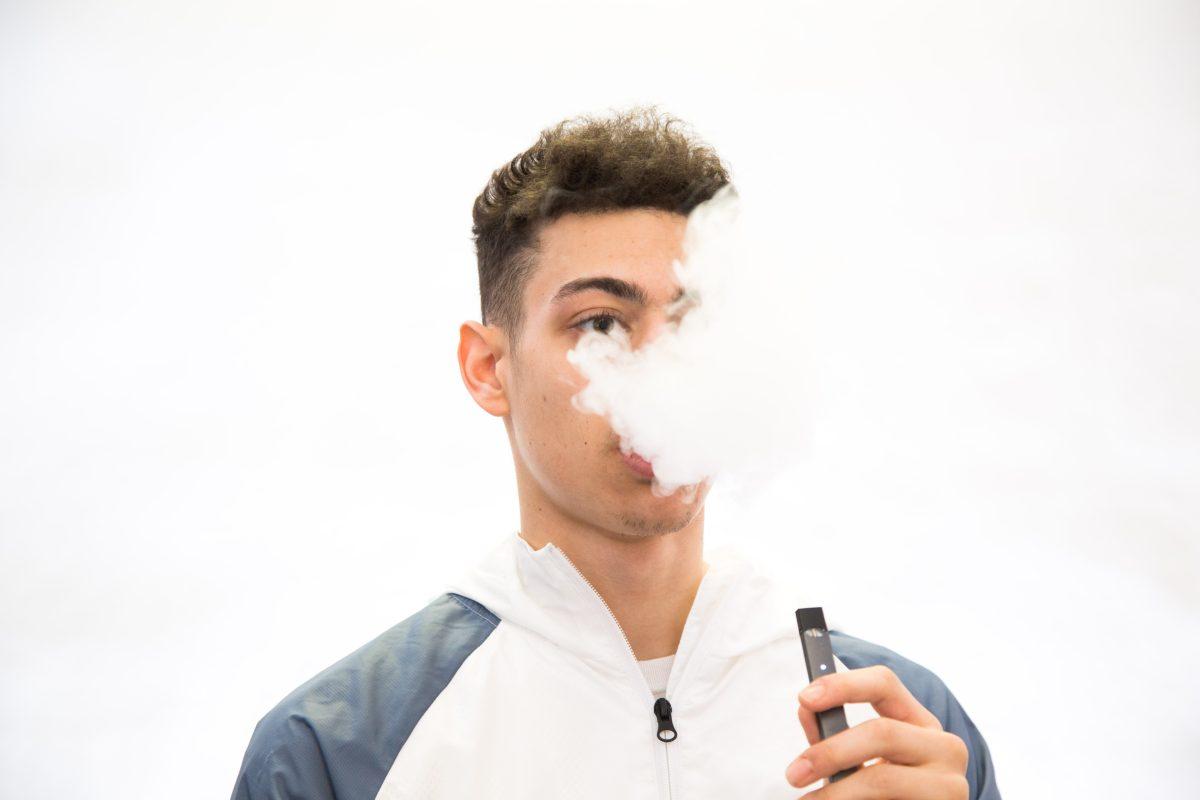Increased e-cigarette use prompts new policy change
Due to the rise of e-cigarette use among students, the university’s smoking policy, which went into effect this semester, now covers electronic devices that contain tobacco and other smoke-producing products.
Cary Anderson, vice president of Student Life and associate provost, explained that over the past few years, the university has seen an upward trend in the number of electronic devices, such as vapes and Juuls, on campus.
“The policy change was a response to that, and the goal was to really make that clear so there are no questions about it,” said Anderson, who worked with members of Human Resources, the Wellness, Alcohol and Drug Education Program (WADE), Student Health Services and Community Standards to rewrite the policy.
St. Joe’s is not the only school noticing the uptick of e-cigarette use among young people. According to the Food and Drug Administration (FDA), e-cigarette use rose from 1.5 percent to 11.7 percent among high school students and from 0.6 percent to 3.3 percent among middle school students from 2011 to 2017.
Katie Bean, assistant director of Student Outreach and Support, said when the university conducted a 2017 survey on student behavior, attitudes and perceptions around alcohol, drugs and tobacco, e-cigarette usage was minimal. About 8.5 percent of the 553 students who took the survey said they used e-cigarettes.
When Bean tells students now about that percentage on the survey, they tell her “No way,” she said.
Bean said the numbers from the survey are so low in part because St. Joe’s seniors taking the survey did not encounter Juuls in high school.
Now, students entering St. Joe’s have seen electronic smoking devices, heard of them or maybe even used them in their high schools.
“If we did the data collection now, I imagine it to be vastly different,” Bean said.
The next survey will be offered in 2020.
John Alloway ’20, the health and wellness chair of the University Student Senate, advocated for the change in the smoking policy.
Alloway, in his role on Senate, focuses on the many dimensions of wellness, including physical, emotional, financial, mental, social, professional and spiritual health.
“These dimensions are very important to the needs of a student’s life, and it is important that each SJU student, including those who smoke, can meet all of these categories.” Alloway said.
Alloway said the change to the policy is a step toward making St. Joe’s a smoke-free campus. Other Philadelphia campuses like Temple University, Drexel University and the University of Pennsylvania are all smoke-free.
But Alloway said it will take time before St. Joe’s is also a smoke-free campus.
“It will not be an overnight decision,” he said.













































